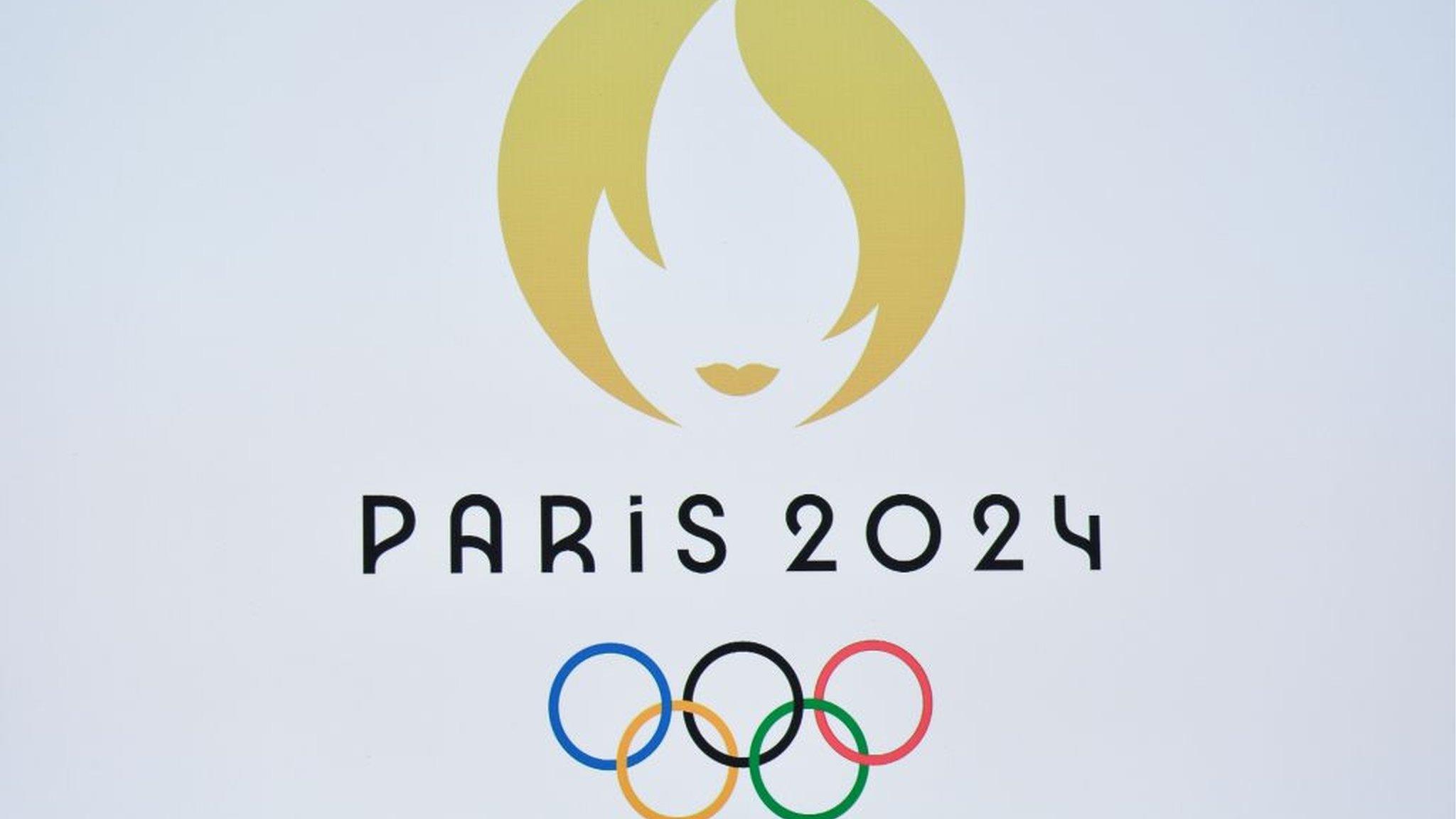BBC team pedal to Paris to highlight sustainability
Paris 2024: BBC team pedal to Paris to highlight sustainability
- Published
Planes, trains and automobiles? A BBC Sport team has ditched all those and will instead cycle from Manchester to the Paris Olympics.
Starting on Tuesday, riders for 'Pedal for Paris' will cover more than 500 miles in eight days to reach the French capital in time for the start of the Games.
BBC Sport senior journalist Sarah Dawkins and cameraman Dave Cheeseman will cycle the entire route and will be joined by BBC Sport sustainability lead Dave Lockwood for half of the journey.
Setting off from the home of British Cycling at the National Cycling Centre, the team will make stops each day to meet with British athletes preparing for the Paris Olympics.
Stops include Loughborough University, the National Badminton Centre in Milton Keynes, Bisham Abbey and the Redgrave Pinsent Rowing Lake in Caversham.
The BBC Sport riders will be accompanied by former Olympic champion and Tour de France cyclist Chris Boardman, with different high-profile guests from the world of sport and entertainment joining, including gold medal-winning Olympic rower and UK Sport chair Dame Katherine Grainger, Britain’s most successful Paralympian Dame Sarah Storey and former England rugby internationals Mike Tindall and James Haskell on a tandem.
Climate change and the discussion around Paris 2024’s sustainability credentials will be a key focus for the BBC team as they navigate their way to France.
The Olympics could be the hottest on record, with experts warning of the impact intense heat could have on athletes. Air and water pollution are also expected to be major talking points, with organisers facing a challenge to make the Seine clean enough for the triathlon and marathon swimming events.
The impact of climate change is not restricted to elite sport.
A new survey of more than 1,000 grassroots sporting organisations - commissioned by the BBC, Sport England and the Wellcome Trust - found 63% of grassroots participants think the sport industry can do more to highlight climate change, and 36% have been forced to change their sporting routine because of extreme environmental conditions such as increased rain, flooding or extreme heat.
Dr Alan Dangour, director of climate and health at Wellcome, said: "Lots of us will have been faced with rained-off events or waterlogged pitches recently, with climate change increasingly disrupting our normal weather patterns.
“Sometimes climate change will mean lots of rain and flooding; other times it will mean uncomfortably or even dangerously high temperatures. These extreme weather patterns are going to affect more and more aspects of our lives, from the things we love to do, such as sport, to the things we simply must do, such as farming.
“With the climate changing rapidly, we need to bring the urgency of dealing with this to the top of the global agenda.
"There are professional athletes who are concerned about climate change and this new survey shows there is widespread support for them speaking out from people participating in sports at the grassroots level."
In his role as Sport England chair, Boardman will encourage sport and physical activity organisations across the country to sign a ‘Going for Green Pledge’, committing to new ways to become more sustainable.
He told BBC Sport: “From ferocious heatwaves becoming more frequent, making it hard for children to simply run around outside, to tens of thousands of grassroots football matches being cancelled every year due to severely flooded pitches, climate change is already impacting our ability to be active.
“We are the first generation to feel the impact of climate change, and the last generation that can do something about it. The status quo cannot be an option.”
Olympians join BBC Sport on Paris cycle to highlight sustainability
Related topics
- Published17 April 2024
